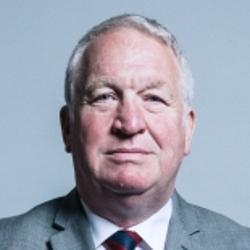Special Educational Needs: Learning Disability
(asked on 17th January 2024) - View SourceQuestion to the Department for Education:
To ask the Secretary of State for Education, to take steps to ensure that all pupils designated with profound and multiple learning disabilities in special education have access to (a) sub vocal phonation methods and (b) other alternative and augmentative communication devices and systems.
The department recognises the importance of providing high-quality support for this group of children with very severe needs, and the work of special schools to provide these children and their parents with education and support that helps them prepare for adulthood. The department’s ambition for Special Educational Needs policy is for all children and young people, no matter what their Special Educational Needs and Disabilities (SEND) are, to receive the right support to succeed in their education and as they move into adult life.
The department knows that the development of communication for pupils with profound and multiple learning difficulties is critical, which is why the department places a huge emphasis on its teaching in special schools. For those pupils with profound multiple learning difficulties in special schools who are working below the level of the national curriculum and who are therefore not engaged in subject-specific study, the department has developed the ‘engagement model’ which is driven by a teacher assessment tool. This model has been designed to enable all pupils’ achievements and progress to be identified and celebrated, including the area of communication and interaction which is one of the four areas of need in the SEND code of practice. The model uses a holistic approach which takes into account their preferred ways of communicating, in recognition of the different barriers that each individual child can face to their communication skills.
Assistive technology (AT) such as alternative and augmentative communication (AAC) devices can remove barriers to learning for students with SEND. The department is committed to building the evidence base around the effective use of AT to ensure it understands the needs of staff and pupils. Following the promising results of a pilot training programme to increase mainstream school staff confidence with AT, the department extended the training to capture more detailed data on the impact on teachers and learners. The department will publish the impact report in May. The department is exploring the AT support needs of staff at special schools, including those working with pupils with profound and multiple learning disabilities (PMLD) and/or those using AAC.
All schools, including special schools, have duties under the Equality Act 2010 towards individual disabled children and young people. They must make reasonable adjustments, including the provision of auxiliary aids and services for disabled children, to prevent them being put at a substantial disadvantage. This is particularly important in ensuring that schools are providing tailored support for pupils with profound and multiple learning difficulties that help with their communication.
More widely, the department is creating a new single national SEND and Alternative Provision (AP) system for identifying and meeting needs. This new single national system will set standards on what support should be made available in mainstream settings, as well as guidance on when specialist provision may be more appropriate for meeting a child or young person’s needs.
As part of this, the department is developing practitioner standards to provide advice to frontline professionals, including teachers and early years staff. The practitioner standards will set out evidence-based best practice in identifying and meeting individual needs. They will cover the areas of need in the SEND code of practice, including speech, language and communication needs.
Early Language Support for Every Child (ELSEC) is a two year pathfinder programme being co-led by the department and NHS England, and is one of the reforms being tested in the SEND and AP Change Programme. The programme will fund innovative workforce models to identify and support children and young people with Speech, Language and Communication Needs at an early stage and support them through universal and targeted interventions, to reduce exacerbation of need that might lead to a specialist speech and language therapy and/or Education, Health and Care plan referral.

